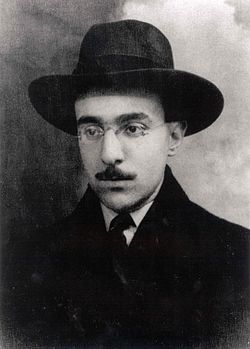Fernando Pessoa Quote
I had the same sensation as when we watch someone sleep. When asleep we all become children again. Perhaps because in the state of slumber we can do no wrong and are unconscious of life, the greatest criminal and most self- absorbed egotist are holy, by a natural magic, as long as they're sleeping. For me there's no discernible difference between killing a child and killing a sleeping man.
Fernando Pessoa
I had the same sensation as when we watch someone sleep. When asleep we all become children again. Perhaps because in the state of slumber we can do no wrong and are unconscious of life, the greatest criminal and most self- absorbed egotist are holy, by a natural magic, as long as they're sleeping. For me there's no discernible difference between killing a child and killing a sleeping man.
Related Quotes
Some of the most evil human beings in the world are psychiatrists. Not all psychiatrists. Some psychiatrists are selfless, caring people who really want to help. But the sad truth is that in today's s...
Rebecca McNutt
Tags:
asocial, child innocence, childhood, colleague, creepy, crime, disorder, drug company, drugs, ethics
About Fernando Pessoa
Fernando António Nogueira de Seabra Pessoa (; Portuguese: [fɨɾˈnɐ̃du pɨˈsoɐ]; 13 June 1888 – 30 November 1935) was a Portuguese poet, writer, literary critic, translator, and publisher. He has been described as one of the most significant literary figures of the 20th century and one of the greatest poets in the Portuguese language. He also wrote in and translated from English and French.
Pessoa was a prolific writer both in his own name and approximately seventy-five other names, of which three stand out: Alberto Caeiro, Álvaro de Campos, and Ricardo Reis. He did not define these as pseudonyms because he felt that this did not capture their true independent intellectual life and instead called them heteronyms, a term he invented. These imaginary figures sometimes held unpopular or extreme views.
Pessoa was a prolific writer both in his own name and approximately seventy-five other names, of which three stand out: Alberto Caeiro, Álvaro de Campos, and Ricardo Reis. He did not define these as pseudonyms because he felt that this did not capture their true independent intellectual life and instead called them heteronyms, a term he invented. These imaginary figures sometimes held unpopular or extreme views.
